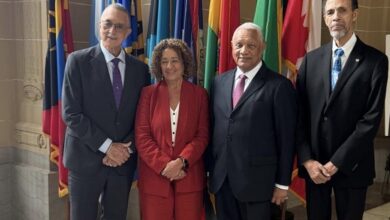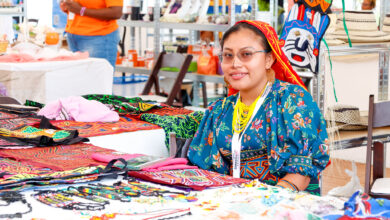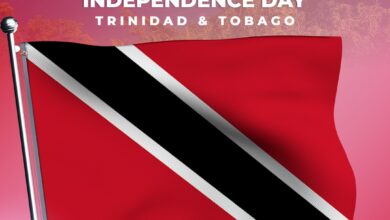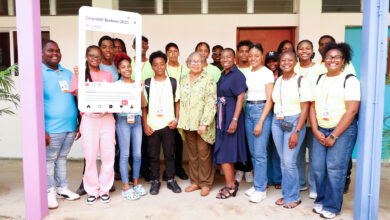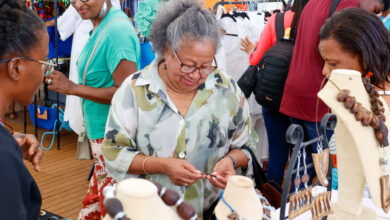(CARICOM Secretariat, Turkeyen, Greater Georgetown, Guyana) It is my pleasure and privilege to welcome you to this Bi- Regional Dialogue of the EU-CARINET Project, on behalf of the Secretary General of the Caribbean Community, Amb. Irwin LaRocque, and also to welcome you to the CARICOM Secretariat.
Scientific knowledge has always been of importance to development in general and in particular, to economic performance and competitiveness. Today, the combined forces of rapid globalization and technological advancement have changed the competitiveness landscape in ways that cannot escape us. We recognize that the sustainable development of our region can be brought about only through the incorporation of research and development in all sectors of our economies and the appropriate development of our human resources. A key element of the required knowledge production and management, is the achievement of closer linkages among science, technology, and innovation at all levels.
The Revised Treaty of Chaguaramas, establishing the Caribbean Community, including the CARICOM Single Market and Economy, is not silent on this issue.
Article 64 of the Treaty recognizes the importance of research and development and in particular, the adoption of measures ‘to encourage, inter alia, inventions and innovation, and acquisition, transfer, assimilation, adaptation and diffusion of technologies in the Community’ and the promotion of ‘co-operation in research and technological development among the Member States and with third States and competent international organizations.’
The Treaty, in Article 63, also emphasizes the need to adopt ‘measures to develop the Community’s human resources which shall, inter alia, support its thrust toward international competitiveness in the development, production and delivery of goods and services, noting that these (measures) shall be designed to address the economic, social and cultural resources development aspects of human resources development.’
There is no doubt that Science, Technology and Innovation (STI) is the vehicle responsible for delivering the advancements and developments the world enjoys today. The big issue for us as Caribbean people is how to ensure that we have access to this vehicle of STI, and that that vehicle has the capacity and is in the condition to continually take us to our development destination in time.
In the current environment, Intra and inter-regional Knowledge Cooperation has become an important imperative and is a catalyst for and facilitator of development. EU-CARINET exemplifies such cooperation. It is a consortium of 5 European and six Caribbean Partners, which seeks to:
Promote and support a long lasting sustainable multi-stakeholder bi-regional
policy dialogue on S&T in order to contribute to a three-fold objective:
• Creating the conditions for the sustainable multi-stakeholder policy dialogue on S&T between the European Union, its member states, its associated states and the Caribbean Region, leading to a joint definition of S&T co-operation policies.
• Fostering inter-regional (EU-CARIBBEAN) and intra-regional cooperation in leading to the identification and prioritisation of common research areas of mutual interest and benefit.
• Stimulating and supporting the participation of the Caribbean research stakeholders in EU FP7 programmes, with a first emphasis on the “People Programme”.
Significant Activities and Outputs to date include:
-
Multi- Stakeholder Dialogue workshops
-
Priority setting workshops
-
Development of Research and Development capacity databases
-
A Workshop on ‘Participation of the Private sector in EU- Caribbean Research, Technology and Innovation
-
Creation of promotional Materials and development of communication strategies
-
Training of researchers
-
Continuing development and capacity building of a network of national focal points
These and other achievements of EU-CARINET over the past three years will be presented and discussed during this workshop. One of the major outputs of the project to date, the Policy Dialogue Strategy Paper will engage our specific attention. We will have an opportunity to examine the evidence with regard to the status of STI in the Caribbean, the barriers and challenges to effective STI and the priorities distilled from the various thematic and other consultations and processes engaged in during the Project. The Workshop will also turn the spotlight on mechanisms for implementation and for sustaining the dialogue. The document is a dynamic one, and exercises such as these are expected to result in further iterations of the paper. That task begins today.
This four year EU-CARINET Project which is now entering the final twelve months, has delivered some important results which can form the basis for re-igniting the discussion around STI at the regional level and also to trigger a renewed approach to the manner in which CARICOM and the Caribbean in general, organizes to advance STI by taking advantage of opportunities and strengthen cooperation with international partners especially the European Union. In fact, we are hopeful that the occasion of this Bi-regional Dialogue Workshop will form the initial step for a renewed regional level approach to Science, Technology and Innovation.
At this workshop we must ask ourselves and find answer to the difficult questions about sustainability and maximization of the positive results of the project.
• How can we ensure that the information, the networks, databases, dialogues established under the Project be expanded and strengthened beyond the life of the project?
• How will recommendations arising from strong analyses find their way to actions towards a changed landscape for STI?
• How can the linkages among Caribbean countries be strengthened and sustained?
• How can we ensure that the bridges established between Caribbean and Europe around STI are strengthened and expanded for continued and future engagements?
• How can we maximize the use of tools such as C@ribnet to further intra and inter-regional cooperation in Research for development?
Ladies and gentlemen, this Bi-regional Dialogue Workshop is timely; it comes at an important stage of the Project, but also at a time when the Caribbean Community is undergoing reflection about its strategic positioning, and is seeking to develop a strategic plan, which inter alia, includes a re-assessment of its priorities and a review of Community institutions. It is our intention to ensure that the recommendations from this workshop find their way into that process, so that appropriate positioning for STI in CARICOM can be achieved.
We therefore need the frank input and contribution of all Partners, organizations and Member States, present here today, because even though the execution of this Project is led by a consortium of Partners, together, we now have an opportunity to critically examine the validity of some of those results/recommendations, make our contributions, and ultimately take ownership of the results, an important first step towards maximizing their utility, and advancing STI as a vehicle for achieving the development we desire.
The CARICOM Secretariat considers itself an important partner in the EUCARINET Project, if for no other reason than the fact that we consider the advancement of Science, Technology and Innovation to be very important aspect of our development in general but also for well-being of our population and for increased economic competitiveness. This is also why we have taken steps over the past eighteen months in particular, to strengthen the internal support for the Project. In this regard I wish to use this opportunity thank and commend Mr Joseph Williams and Rawl Prescott for their excellent support.
I wish to place on record our sincere appreciation to all of the European and Caribbean partners for their investment of knowledge, enthusiasm and energy in the partnership and the resulting quality of cooperation and output which we hope will become evident to you at the end of today’s proceedings.
Our Project co-ordinators APRE deserve special commendation for their excellent management of the project. We have never doubted their commitment and interest in ensuring that the desired results are achieved. Special thanks to Diasina Di Maggio, Caterina Buonocore and Keji Adumo.
None of this would have been possible however, without the foresight, policy commitment to international cooperation in Science and Technology, and resources made available through the European Union. We express our sincere appreciation. EU-CARINET is as an important plank in preparing the Caribbean to engage even more meaningfully with the EU in this area, for example in Horizon 2020 and we therefore look forward to our continued cooperation as we seek to advance Science, Technology and Innovation for the development of our region.
I am confident that we will have a productive workshop.
I thank you.

